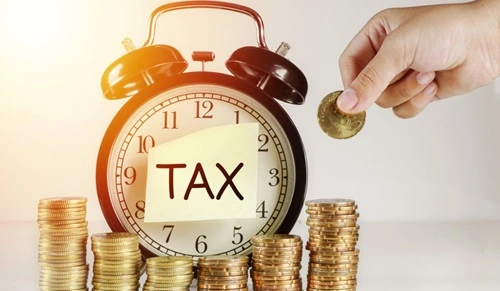In India, the government has introduced the concept of advance tax payment to help taxpayers spread their tax liability over the financial year instead of paying it all at once. This system is beneficial for those who earn income beyond salary, such as business owners, freelancers, or individuals with rental income, interest income, or capital gains. The advance tax is usually paid in installments throughout the year, making it more convenient for taxpayers.
If your total tax liability for a financial year exceeds ₹10,000, you are required to pay advance tax. This article will help you understand the concept of advance tax payment, its advantages, and disadvantages. Let’s begin with the benefits that advance tax offers to taxpayers.

Advantages of Advance Tax Payment
1. Prevents a Last-Minute Rush
One of the key benefits of paying advance tax is that it spreads your tax payments over the financial year. This reduces the pressure of paying a large lump sum during the tax filing deadline. It allows better cash flow management and avoids the financial burden of a huge tax payment at the last moment.
2. Helps Avoid Penalties
If you fail to pay your advance tax, the Income Tax Department can impose interest penalties under Section 234B and Section 234C of the Income Tax Act. By making timely advance tax payments, you can avoid these penalties and stay compliant with tax laws. This helps you save on additional costs and ensures a smooth financial year-end.
3. Easier Financial Planning
Advance tax helps individuals and businesses manage their finances better by breaking down their tax liability into smaller, manageable payments. It allows taxpayers to plan for their expenses throughout the year without having to worry about a massive tax payment when the filing deadline arrives.
4. Interest Earnings for the Government
For the government, the advance tax system allows the collection of revenue throughout the financial year. This helps the government fund its expenses in a timely manner, reducing its reliance on borrowing and providing a steady cash flow to meet its financial obligations.
5. Suitable for Self-Employed and Business Owners
For individuals who do not receive a regular salary, such as freelancers, consultants, and business owners, advance tax payments are particularly useful. Their income fluctuates, and advance tax payments help them stay on top of their tax obligations throughout the year, preventing any shocks at the year-end.
6. Encourages Tax Compliance
Advance tax payments promote better tax compliance among individuals and businesses. Since the process is broken into installments, it becomes easier for people to keep track of their taxes. The system also encourages transparency in reporting income and paying taxes, leading to fewer disputes with the tax authorities.
Disadvantages of Advance Tax Payment
1. Inconvenience for Small Taxpayers
For individuals with fluctuating incomes or smaller earnings, advance tax can be difficult to estimate accurately. If their income projections are incorrect, they may end up overpaying or underpaying taxes, which can cause financial strain or lead to penalties for underpayment.
2. Cash Flow Disruptions
For businesses or individuals who rely on seasonal income or have unpredictable cash flow, paying advance tax can be challenging. These taxpayers may struggle to make the necessary payments on time, causing disruptions in their regular cash flow. Missing an advance tax deadline can lead to penalties, further complicating their financial situation.
3. Complicated Estimation Process
Estimating advance tax payments can be complex, especially for self-employed individuals, professionals, and business owners. They need to account for multiple sources of income, deductions, and tax rates. Any errors in calculation can lead to overpayment or underpayment, both of which have their own financial consequences.
4. Interest Loss for Taxpayers
When individuals pay advance tax, they lose out on the potential interest earnings they could have made if they had invested that money. Although this may not be a significant loss, for taxpayers who are able to generate income through investments, paying advance tax might feel like a missed opportunity.
5. Additional Compliance Burden
Advance tax payment adds an extra layer of compliance, especially for small businesses and self-employed individuals who may not have the resources to handle the paperwork. They need to keep track of payment deadlines, calculate tax liability at different points of the year, and make timely payments, which can be overwhelming.
6. Possible Overpayment
There is a chance of overestimating income while calculating advance tax, especially if unforeseen circumstances arise, such as a business slowdown or job loss. In such cases, the taxpayer ends up paying more tax than required. Though this excess amount is refundable, the process of claiming a tax refund can take time and effort.
Conclusion
Advance tax payment is a crucial part of India’s tax system, aimed at making the process easier for both taxpayers and the government. It has many advantages, such as easing the financial burden at the end of the year, avoiding penalties, and promoting better tax compliance. However, it also comes with some disadvantages, particularly for small taxpayers and those with irregular income.
Before paying advance tax, it is important to carefully assess your income projections, expenses, and liabilities to ensure accuracy. Consulting with a tax professional can help you navigate the complexities and make informed decisions about your advance tax payments.
In the end, whether you are a salaried individual or a business owner, understanding how advance tax works can help you manage your finances better and stay on the right side of the law.